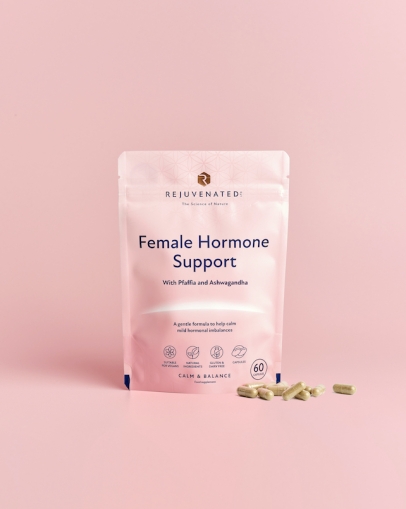Understanding the stress response in perimenopause & menopause

Why your body feels more sensitive to stress - and what you can do about it.
If you’ve noticed that stress seems to affect you more deeply during perimenopause or menopause, you’re not alone.
This all links back to the HPA axis - a key part of the body’s stress response system. When we experience stress, the brain signals the adrenal glands to release cortisol, the body’s main stress hormone. Normally, once enough cortisol is produced, the system switches off - thanks to a built-in mechanism called negative feedback.
However, during perimenopause and menopause, levels of oestrogen and progesterone start to decline. This impacts the HPA axis, especially as progesterone known for its calming, balancing role drops significantly. The result? A stress response that’s more reactive and less regulated, leaving many women feeling anxious, overwhelmed, and exhausted.
To add to this, the adrenal glands are called on to help produce sex hormones as the ovaries slow down. But if the body is already under chronic stress, the adrenals prioritise making cortisol leaving little energy for producing hormones like DHEA or progesterone.
What can help?
- Focus on daily stress relief: think breathwork, nature walks, and quality sleep
- Eat a nourishing diet with plenty of magnesium-rich foods and plant-based nutrients
- Hydrate well and support gut health
- Consider smart supplementation for support
Two Rejuvenated formulas designed to help:
Cellular Calm Complex - a nurturing blend of L-theanine, magnesium, rhodiola, ashwagandha, and acetyl-choline to calm the mind, reduce stress, and support resilience at a cellular level.
Female Hormone Support - created to support women through perimenopause and menopause with a powerful blend of botanicals, vitamins and minerals to balance hormones, ease mood swings, reduce fatigue, and support overall wellbeing.




_406x509.jpg)



